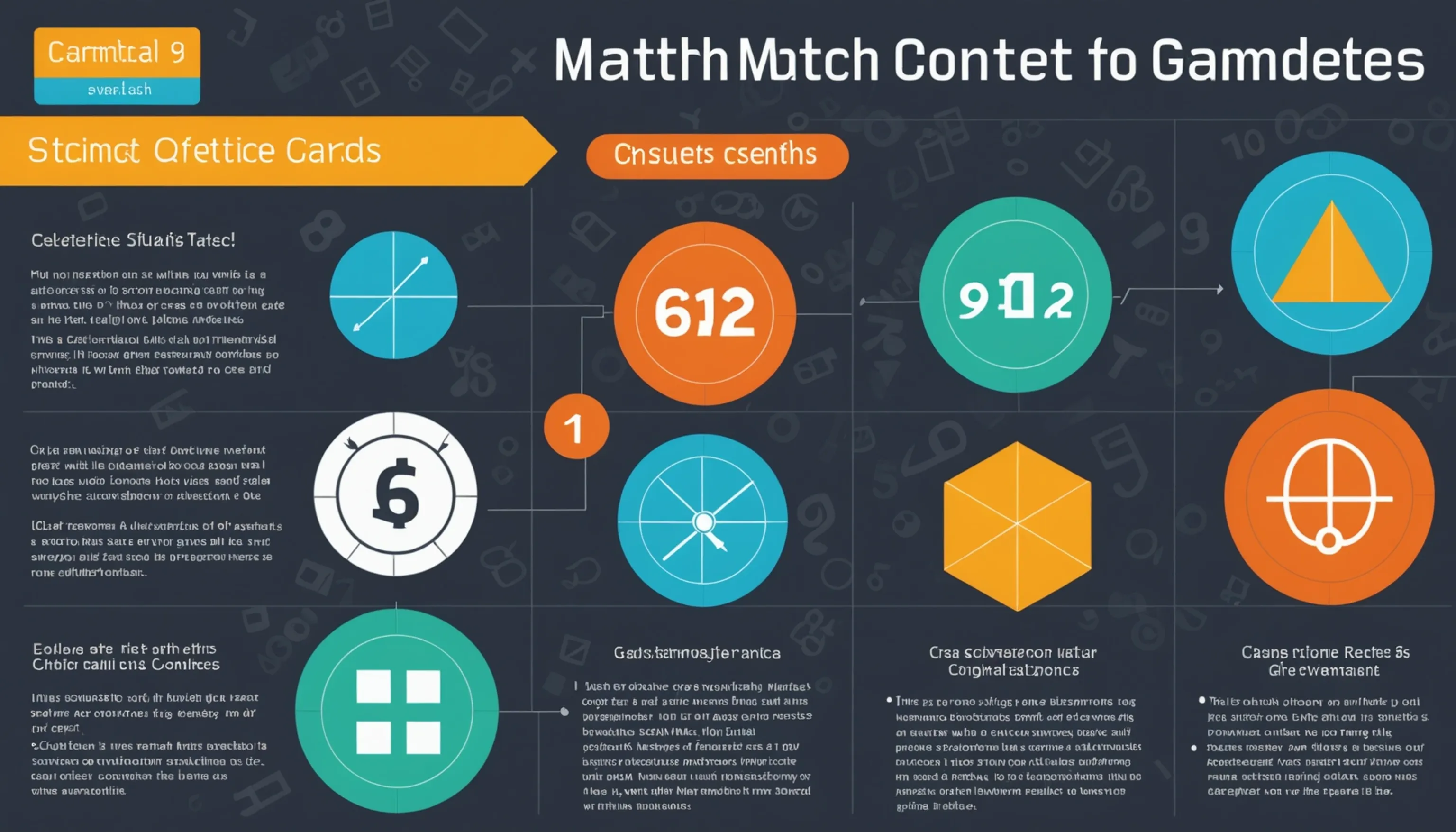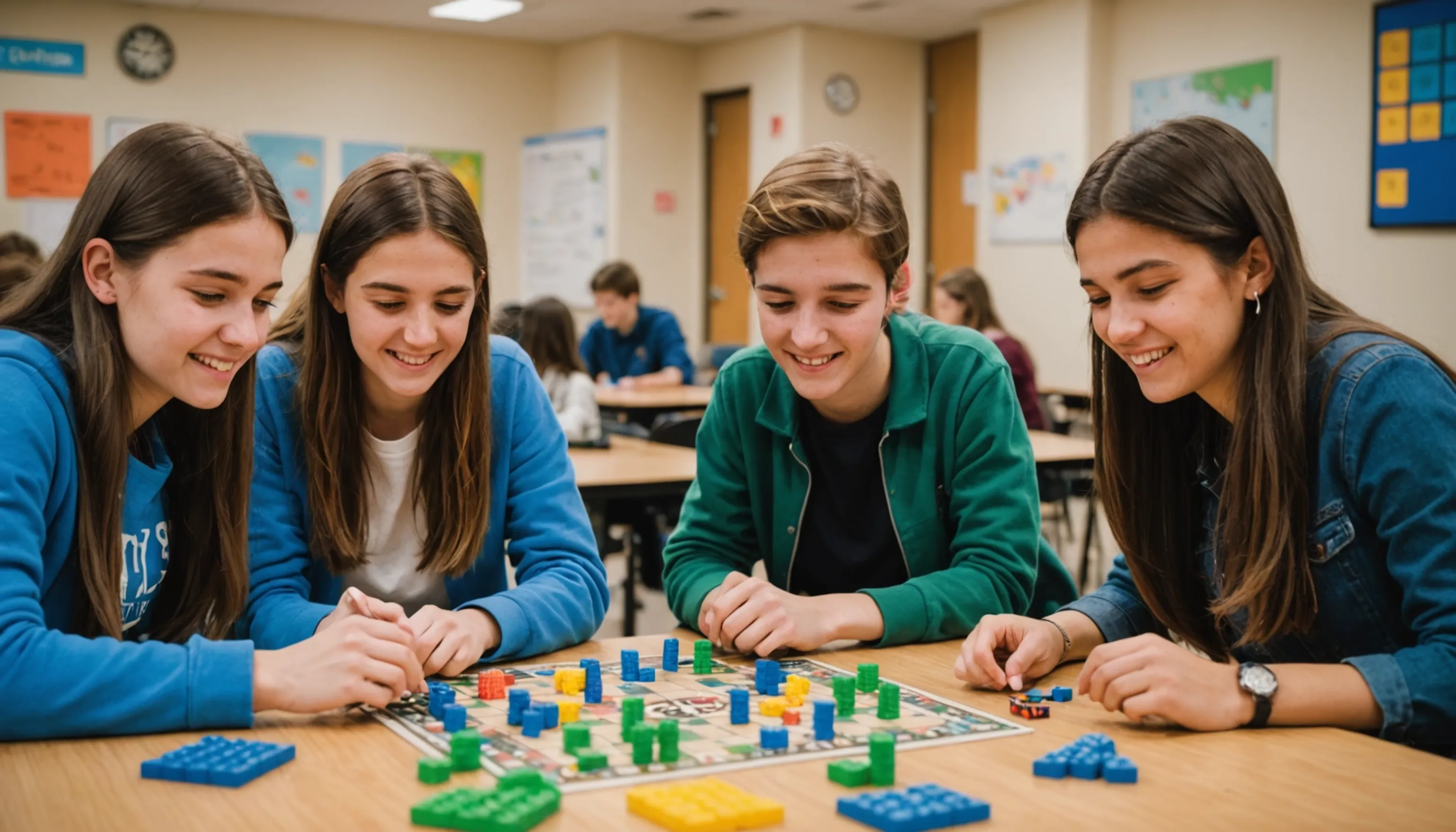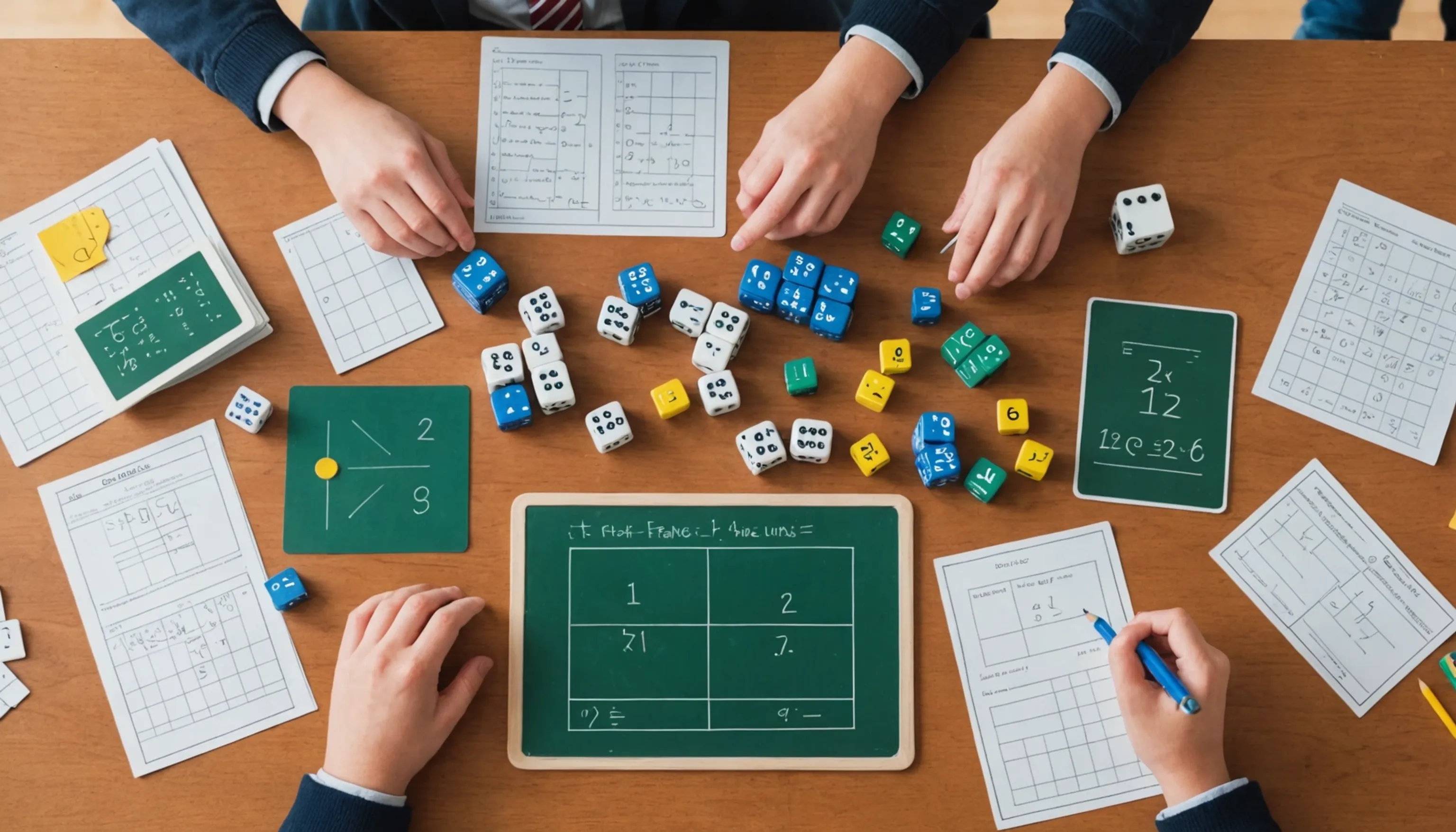Math Games for Grade 11 Students
 HvWHenry van Wagenberg
HvWHenry van Wagenberg
Engaging Math Games for Grade 11 Students
Engaging math games for Grade 11 students can significantly enhance their learning experience. These games not only make math enjoyable but also reinforce important concepts. For example, games that focus on algebra, geometry, and statistics can help students grasp complex ideas in a fun way.
Incorporating competitive elements can also motivate students to participate actively. Whether played in a classroom setting or at home, games like math bingo, math Jeopardy, or interactive online quizzes can challenge students and encourage peer collaboration. By transforming math into a game, students are more likely to develop a positive attitude towards the subject.
Benefits of Math Games for High School Learning
Math games offer numerous benefits for high school learning, especially for Grade 11 students. Firstly, they enhance engagement by making complex mathematical concepts more accessible and enjoyable. When students participate in games, they are more likely to stay focused and motivated, which is crucial for learning.
Additionally, math games promote critical thinking and problem-solving skills. Students often face real-time challenges during gameplay, requiring them to analyze situations, make decisions, and adapt strategies. This interactive environment fosters a deeper understanding of mathematical principles and encourages creativity in approaching problems.
Another significant benefit is the development of teamwork and communication skills. Many math games require collaboration, allowing students to work in pairs or groups. This not only builds their social skills but also helps them learn from one another, reinforcing their understanding of the subject matter.
Moreover, math games can provide instant feedback, enabling students to identify their strengths and weaknesses quickly. This immediate response helps students adjust their learning strategies as needed. Furthermore, games can be tailored to different skill levels, ensuring that all students can participate and benefit, regardless of their mathematical proficiency.
Incorporating math games into the curriculum also creates a positive learning environment where mistakes are viewed as part of the learning process. Overall, the use of math games in high school can lead to improved academic performance and a more favorable attitude towards mathematics.

Top Math Games for Grade 11
Here are some of the top math games for Grade 11 students that can make learning both fun and effective:
- Math Jeopardy: This game adds a competitive twist to learning, allowing students to answer questions across various math topics in a quiz format.
- Algebra Bingo: A classic game that reinforces algebraic concepts while keeping students engaged.
- Kahoot: An online platform where teachers can create quizzes that students answer in real-time, promoting active participation.
- Prodigy Math: A free, online game that tailors math challenges to individual student levels, making it adaptable and engaging.
- Sudoku: While not strictly a math game, it enhances logical reasoning and number placement skills.
By integrating these games into lessons, teachers can foster a more enjoyable and productive learning environment for their students.
Online Math Games for Grade 11
Online math games provide an excellent resource for Grade 11 students to enhance their math skills while enjoying interactive learning experiences. These games are accessible from any device with an internet connection, making them convenient for both classroom and home use.
One popular option is Kahoot!, where teachers create quizzes that students can answer in real-time. This game not only tests their knowledge but also adds a competitive edge that motivates students to participate actively.
IXL is another valuable platform that offers personalized practice. It adapts to each student's skill level, allowing them to work on areas where they need improvement, from algebra to calculus. This tailored approach ensures that students remain engaged and challenged.
For those looking for a more gamified experience, Prodigy Math combines adventure with learning. Students embark on quests and battles while solving math problems aligned with their curriculum, making math fun and immersive.
Additionally, platforms like Mathway and Brilliant provide problem-solving tools and interactive lessons that foster critical thinking. These resources help students understand complex concepts through hands-on practice.
Overall, online math games for Grade 11 not only reinforce essential mathematical skills but also create an engaging environment that encourages continuous learning.

Board Games That Enhance Math Skills
Board games are a fantastic way to enhance math skills for Grade 11 students while encouraging social interaction and strategic thinking. Here are some popular board games that incorporate mathematical concepts:
- Monopoly: This classic game teaches players about financial management, addition, and strategic planning as they buy, sell, and trade properties.
- Settlers of Catan: In this game, players gather resources and build settlements, which involves calculating probabilities and making decisions based on resource management.
- Prime Climb: A colorful board game that focuses on prime numbers and arithmetic operations. Players must use addition, subtraction, multiplication, and division to navigate the board and reach the finish line.
- 24 Game: This fast-paced game challenges players to use four numbers and any combination of basic operations to create the number 24. It sharpens mental math skills and promotes quick thinking.
- Math Dice: A game that combines luck and strategy, where players roll dice and create equations to match a target number, enhancing their arithmetic skills.
Integrating these board games into study sessions can make learning math enjoyable and collaborative. Students not only strengthen their mathematical understanding but also develop critical thinking and social skills.
Creating Your Own Math Games
Creating your own math games can be an exciting way to engage Grade 11 students while reinforcing mathematical concepts. Here are some steps to help you design effective games:
- Identify Learning Objectives: Determine which math concepts you want to focus on, such as algebra, geometry, or statistics.
- Choose a Game Format: Decide on the type of game, whether it's a board game, card game, or digital format. Consider what will best suit your students' interests.
- Incorporate Challenges: Create questions or problems that require critical thinking and problem-solving. Use real-life scenarios to make the game relevant.
- Set Rules and Scoring: Establish clear rules and a scoring system to keep the game competitive and fun.
- Test and Iterate: Playtest the game with a small group, gather feedback, and make adjustments as needed.
By involving students in the creation process, you can foster a deeper understanding of math concepts and encourage collaborative learning.
How to Design Effective Math Games
Designing effective math games requires careful planning and consideration to ensure they are engaging, educational, and suitable for Grade 11 students. Here are some key steps to follow:
- Define Objectives: Start by clearly defining the learning objectives. What specific math concepts do you want students to master? This could include topics like functions, geometry, or probability.
- Know Your Audience: Consider the interests and skill levels of your students. Tailor the game mechanics and complexity to match their capabilities and preferences.
- Choose the Game Format: Decide whether you want a competitive or cooperative game. Popular formats include board games, card games, or digital apps. Each format offers unique advantages in terms of engagement and interactivity.
- Incorporate Challenges: Create challenges that require strategic thinking and problem-solving. Use scenarios that require students to apply their math skills in realistic contexts, such as budgeting, planning events, or analyzing data.
- Provide Feedback: Ensure that the game includes mechanisms for instant feedback. This helps students recognize their mistakes and learn from them in real time.
- Test and Revise: Before finalizing the game, conduct playtests with a small group of students. Gather their feedback on what they enjoyed and what could be improved, and make necessary adjustments.
By following these steps, you can create effective math games that not only reinforce learning but also make math enjoyable for Grade 11 students.
Incorporating Real-Life Problems into Games
Incorporating real-life problems into math games is an effective strategy to enhance engagement and relevance for Grade 11 students. By connecting math concepts to everyday scenarios, students can see the practical applications of their learning. Here are some steps to achieve this:
- Identify Relevant Scenarios: Start by identifying situations that students can relate to, such as budgeting for a trip, managing a business, or planning a community event. These scenarios should require the use of math concepts like percentages, ratios, and statistics.
- Design Game Mechanics: Create game mechanics that revolve around these real-life problems. For example, a budgeting game could involve players making financial decisions based on given constraints, while a business simulation game could require them to analyze profit margins and expenses.
- Encourage Critical Thinking: Structure the game to prompt students to think critically about their choices. Include challenges that require them to analyze data, make predictions, or solve problems based on the scenarios presented.
- Utilize Collaboration: Encourage teamwork by having students work in groups to tackle real-life problems. This not only fosters communication skills but also allows them to learn from each other’s perspectives.
- Reflect on Learning: After gameplay, hold a discussion to reflect on the math concepts applied. Ask students how they could use these skills in real life and what they learned from the experience.
By embedding real-life problems into math games, educators can create a richer learning experience that prepares students for real-world challenges.
